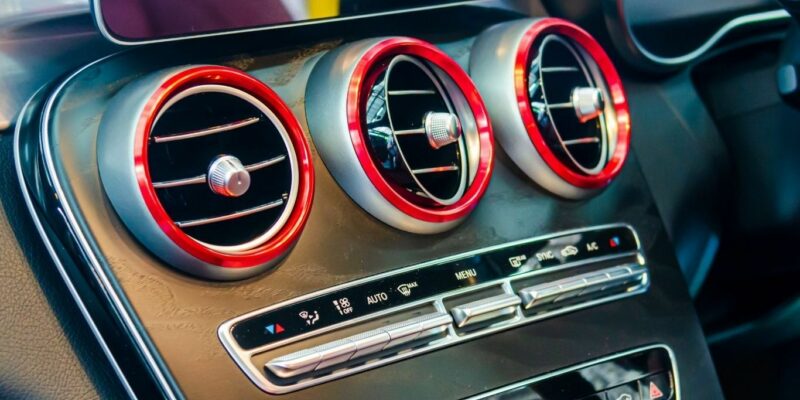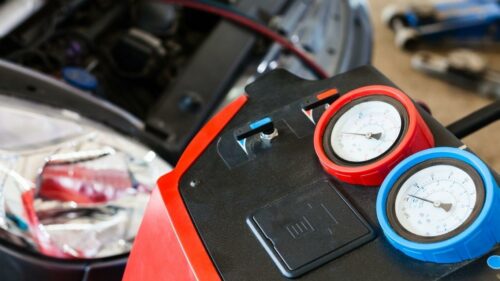
Air conditioning is an increasingly common feature in cars. And like other parts of a vehicle, the air conditioning system needs careful maintenance.
Bacteria
It’s possible for bacteria to develop in a car’s air conditioning system. Fungi may also form. The result can be bad smells. More importantly, tainted air in a car can lead to poor health and allergic reactions in a driver and passengers. When an air conditioning system receives a service, mechanics should disinfect the evaporator. The disinfectant destroys and prevents bacterial and fungal growth.
Qualifications
Ideally, the mechanics that service car air conditioning systems should have appropriate qualifications. Among these are City and Guilds 5101 training courses, and Construction Industry Training Board (CITB) certificates. The courses include Split System Installation, Safe Handling of Refrigerants, and Vehicle Air Conditioning Service and Repair. There are also four categories of F-Gas certificates.
Drivers who have serious problems with their air conditioning may need to contact engineers that work in the industry. Check that an engineer is a member of the Institute of Refrigeration (IOR), the Society of Operational Engineers (SOE), or the Institute of Road Transport Engineers (IRTE).
It’s also worth noting that car air conditioning firms often register with the Air Conditioning and Refrigeration Industry Board (ACRIB).

The Law
The law governs the type and safety of car air conditioning systems. The main elements of the law are in the Motor Vehicles (EC Type Approval) (Amendment No 2) Regulations 2007 and the Motor Vehicles (Type Approval for Goods Vehicles (Amendment) Regulations 2009.
The regulations apply to makers of cars and vans, and suppliers of air conditioning equipment.
Essentially, the regulations seek to ban use of the refrigerant HFC 134a. This ban is in keeping with an EU commitment made as part of the Kyoto Protocol on climate change.
The ban is in two stages. From 1 January 2011, no one must use any refrigerant with a global warming potential (GWP) of 150 or higher on new vehicle types. From 1 January 2017, the ban extends to all new cars and vans. At the moment, HFC 134a has a GWP of 1300.
What this means is that new cars from 1 January 2017 will have redesigned air conditioning units. Current units are not intrinsically unsafe. But they may well have a high GWP. The danger to the environment of a refrigerant such as HFC 134a means that qualified engineers and mechanics should be the only people who service and remove car air conditioning systems.
Never attempt to conduct such a service at home. The service may involve emptying and refilling the refrigerant. Qualified personnel can conduct such an operation safely, and recycle the HFC 134a without it damaging the atmosphere.
Preventing Problems
To help avoid problems with a car’s air conditioning system, use it for half an hour or more every month. This includes the winter. After all, an air conditioning system can heat the inside of a car as well as cool it. Such regular use ensures the system works properly.
Also, ensure that a car’s service includes work on the air conditioning system. And check that the garage has mechanics with the appropriate training.
Disclaimer: The information in the article is for general purpose information only and should not be constituted as legal advice. This article has been produced by a third party and Jardine Motors does not take any responsibility for the completeness, accuracy, or reliability with respect to the website or the information provided. Article last updated March 2016.



